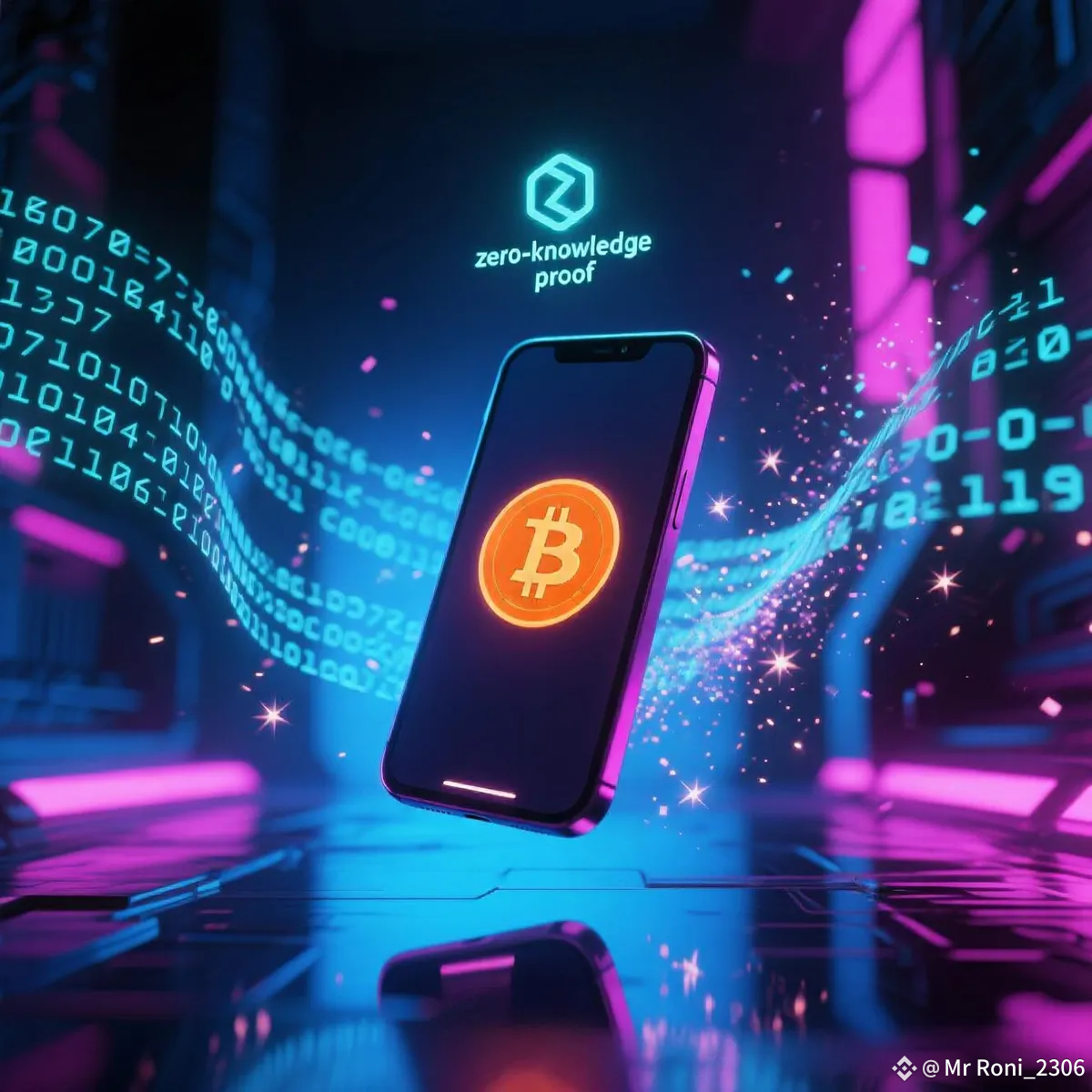StarkWare Just Made Bitcoin Verification Fit in Your Pocket — Literally
StarkWare’s new zero-knowledge proof compresses Bitcoin’s entire block header history into 1MB — letting mobile users verify BTC transactions in under 100ms, no full node required.

📱 Bitcoin in Your Back Pocket (No, Really)
Imagine verifying a Bitcoin transaction on your phone — not through a third-party app or centralized API, but cryptographically, peer-to-peer, with the same rigor as a full node. That’s no longer sci-fi. StarkWare, the team behind Starknet and pioneers of zero-knowledge (ZK) tech, just dropped a mobile-optimized ZK proof that verifies Bitcoin’s entire chain — from Satoshi’s first block to the latest — in under a tenth of a second… and it fits inside a single megabyte.
Yes. One. Megabyte.
For context: Bitcoin’s full ledger weighs in at over 680GB — the digital equivalent of hauling around a server rack. StarkWare’s trick? Ignore the transaction soup. Focus only on the block headers — the “table of contents” for every block — and wrap them in a sleek, cryptographic proof that says: “Yep, this chain is legit.”
🧱 Why Block Headers Are the Secret Sauce
Each Bitcoin block header is a tiny package of metadata — version number, previous block hash, timestamp, Merkle root, difficulty target, and nonce. Think of it as the blockchain’s spine. Verify the headers, and you verify the chain’s structural integrity. You don’t need every transaction — just proof that the blocks themselves are valid and linked correctly.
StarkWare’s innovation isn’t just compression — it’s cryptographic elegance. Their ZK system generates a single proof that encompasses all 850,000+ block headers (and counting), letting your phone say “this payment is confirmed” without downloading a single gigabyte.
Abdelhamid Bakhta, StarkWare’s ecosystem lead, confirmed the proof runs in under 100ms on commodity mobile hardware. Translation: faster than your coffee order loads on Uber Eats.
⛓️ Satoshi’s Dream, Upgraded
This isn’t a new idea — it’s an evolution. Satoshi Nakamoto himself proposed Simplified Payment Verification (SPV) in the original Bitcoin whitepaper — a way for lightweight clients to verify payments using only block headers. But SPV still required downloading and syncing headers (~60MB and growing), and was vulnerable to certain eclipse attacks.
StarkWare’s ZK-SPV? It’s SPV on crypto-steroids. No sync. No storage bloat. Just a tiny proof you can fetch from anywhere and verify locally — trustlessly, privately, instantly.
This could be the key to mass Bitcoin adoption: wallets that verify payments without trusting servers, exchanges that prove solvency without exposing user data, even Bitcoin-powered mobile games that settle on-chain without melting your battery.
⚠️ The Great Node Debate: Decentralization vs. Bloat
Of course, none of this exists in a vacuum. Bitcoin’s ledger is swelling — not just from transactions, but from inscriptions, ordinals, runes, and other data-hungry experiments. The blockchain’s now pushing 680GB, and while that’s still manageable for many, it’s creeping toward the edge of “casual user” tolerance.
Bitcoin Core’s upcoming v30 update — dropping the OP_Return limit from 80 bytes — will likely accelerate this bloat. Cue the rise of Bitcoin Knots: a node software fork letting operators filter out “junk” data. Knots nodes have surged from 1% to nearly 20% of the network in under a year — a quiet rebellion against data inflation.
StarkWare’s solution sidesteps the storage war entirely. Why fight over ledger size when you can verify the chain with a file smaller than your average meme?
🔮 What This Means for the Future
Mobile Wallets Get Superpowers: Imagine Trust Wallet or BlueWallet letting you verify incoming BTC payments with ZK proofs — no middlemen, no delays.
Layer 2s & Bridges Level Up: Bitcoin L2s can now anchor security to the main chain without dragging users through node setup hell.
Privacy Meets Portability: ZK proofs mean you can verify without revealing what you’re verifying — perfect for private mobile payments.
Developer Renaissance: Expect a wave of Bitcoin mobile apps that were previously impossible due to verification overhead.
